Appleberry, Apple dumpling, Common Appleberry
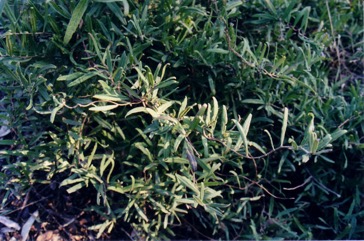
It is a temperate plant. It tends to grow in dry woodland. It can grow in coastal scrub or high rainfall forest. It needs well drained soil. It can stand light frost. Tasmania Herbarium.
Edible Portion
- Fruit
Where does Appleberry grow?
Found in: Australia, Tasmania
Notes: There are about 25 Billardiera species. They grow in Australia.
Status: The fruit are eaten by children.
Growing Appleberry, Apple dumpling, Common Appleberry
Cultivation: Plants can be grown from seed or cuttings. The fresh seed with the pulp removed are sown shallowly. They take 8-10 weeks to germinate. Stored seed may take a year to germinate. Cuttings strike easily. Semi ripe cuttings 10-12 cm long with a heel are planted in warm soil. Young stems can be layered to form roots.
Edible Uses: The ripe fruit are eaten. They have a flavour like stewed apples. The unripe fruit need to be cooked. For eating fresh the fruit should be very ripe and soft. They can be cooked. It can be used in baked desserts, pies, tarts, muffins and scones.
Production: Fruit are usually harvested after they have fallen to the ground. They are then very ripe.
Nutrition Info
per 100g edible portion| Edible Part | Energy (kcal) | Protein (g) | Iron (mg) | Vitamin A (ug) | Vitamin c (mg) | Zinc (mg) | % Water |
|---|---|---|---|---|---|---|---|
| Fruit | 76 | 1.1 | 7.7 | - | - | 1.5 | 66.7 |
Appleberry, Apple dumpling, Common Appleberry Photos

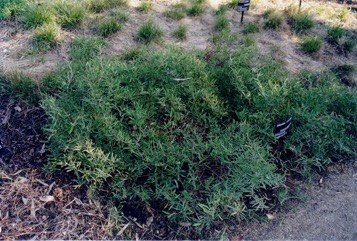
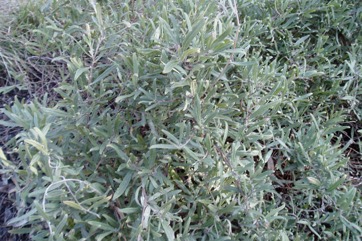
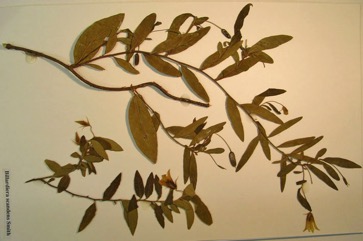
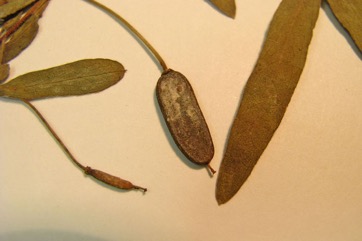
References
Blomberry, A.M., 1979, Australian Native Plants. Angus and Robertson p 164
Bodkin, F., 1991, Encyclopedia Botanica. Cornstalk publishing, p 148
Brickell, C. (Ed.), 1999, The Royal Horticultural Society A-Z Encyclopedia of Garden Plants. Convent Garden Books. p 179
Cameron, M., (Ed.) 1981, A Guide to Flowers & Plants of Tasmania. Reed p 88
Caton, J.M. & Hardwick, R. J., 2016, Field Guide to Useful Native Plants from Temperate Australia. Harbour Publishing House. p 312
Cherikoff V. & Isaacs, J., The Bush Food Handbook. How to gather, grow, process and cook Australian Wild Foods. Ti Tree Press, Australia p 194, 198
Cronin, L., 1989, The Concise Australian Flora. Reed. p 24
Cribb, A.B. & J.W., 1976, Wild Food in Australia, Fontana. p 62
Curtis, W.M., 1956, The Students Flora of Tasmania Vol 1 p 56
Edible and Useful Native Plants (off internet)
Elliot, W.R., & Jones, D.L., 1982, Encyclopedia of Australian Plants suitable for cultivation. Vol 2. Lothian. p 322
Facciola, S., 1998, Cornucopia 2: a Source Book of Edible Plants. Kampong Publications, p 173
Greig, D., 1996, Flowering Natives for Home Gardens. Angus & Robertson. p 74
Grieg, D., 2002, A photographic guide to Wildflowers of South-eastern Australia. New Holland. p 101
Hardwick, R.J., 2000, Nature's Larder. A Field Guide to the Native Food Plants of the NSW South Coast. Homosapien Books. p 90
Haslam, S., 2004, Noosa's Native Plants. Noosa Integrated Catchment Assn. Inc. p 224
Hastings Advance Community College, 2017, Uses for Native Plants of the Mornington Peninsula. 86pp. p 24
Heyne, G. & P., 1985, Australian Plants for your Garden. Lothian. p 48
Hibbert, M., 2002, The Aussie Plant Finder 2002, Florilegium. p 43
Isaacs, J., 1987, Bush Food, Aboriginal Food and Herbal Medicine. Weldons. p 60, 64
Jones, D.L. & Gray, B., 1977, Australian Climbing Plants. Reed. p 79
Lazarides, M. & Hince, B., 1993, Handbook of Economic Plants of Australia, CSIRO. p 33
Lord, E.E., & Willis, J.H., 1999, Shrubs and Trees for Australian gardens. Lothian. p 321
Low, T., 1992, Bush Tucker. Australia’s Wild Food Harvest. Angus & Robertson. p 23, 40
Lyle, S., 2006, Discovering fruit and nuts. Land Links. p 94
Molyneux, B & Forrester, S., 1997, The Austraflora A-Z of Australian Plants. Reed. p 55
Morley, B.D., & Toelken, H.R., (Eds), 1983, Flowering Plants in Australia. Rigby. p 140
Plants for a Future database, The Field, Penpol, Lostwithiel, Cornwall, PL22 0NG, UK. http://www.scs.leeds.ac.uk/pfaf/
Recher, P, 2001, Fruit Spirit Botanical Gardens Plant Index. www.nrg.com.au/~recher/ seedlist.html p 1
Robins, J., 1996, Wild Lime. Cooking from the Bush food garden. Allen & Unwin p 86
Ryan, M. (Ed.), 2003, Wild Plants of Greater Brisbane. Queensland Museum. p 309
Smith, K & I., 199, Grow your own bushfoods. New Holland. Australia. p 23
Spec. bot. New Holland 1, t. 1. 1793
Steenbeeke, Greg as part of the Plants Directory project. List of plant species from northern NSW that may be used as food plants p 11
Townsend, K., 1994, Across the Top. Gardening with Australian Plants in the tropics. Society for Growing Australian Plants, Townsville Branch Inc. p 100
White, G., 2008, The Bush Tucker Survival Guide. https://www.survival.org.au
Williams, K.A.W., 1999, Native Plants of Queensland Volume 4. Keith A.W. Williams North Ipswich, Australia. p 74
Wrigley, J.W., & Fagg, M., 1982, Australian Native Plants. Collns. p 76
www.ceres.org/au/bushfood catalogue